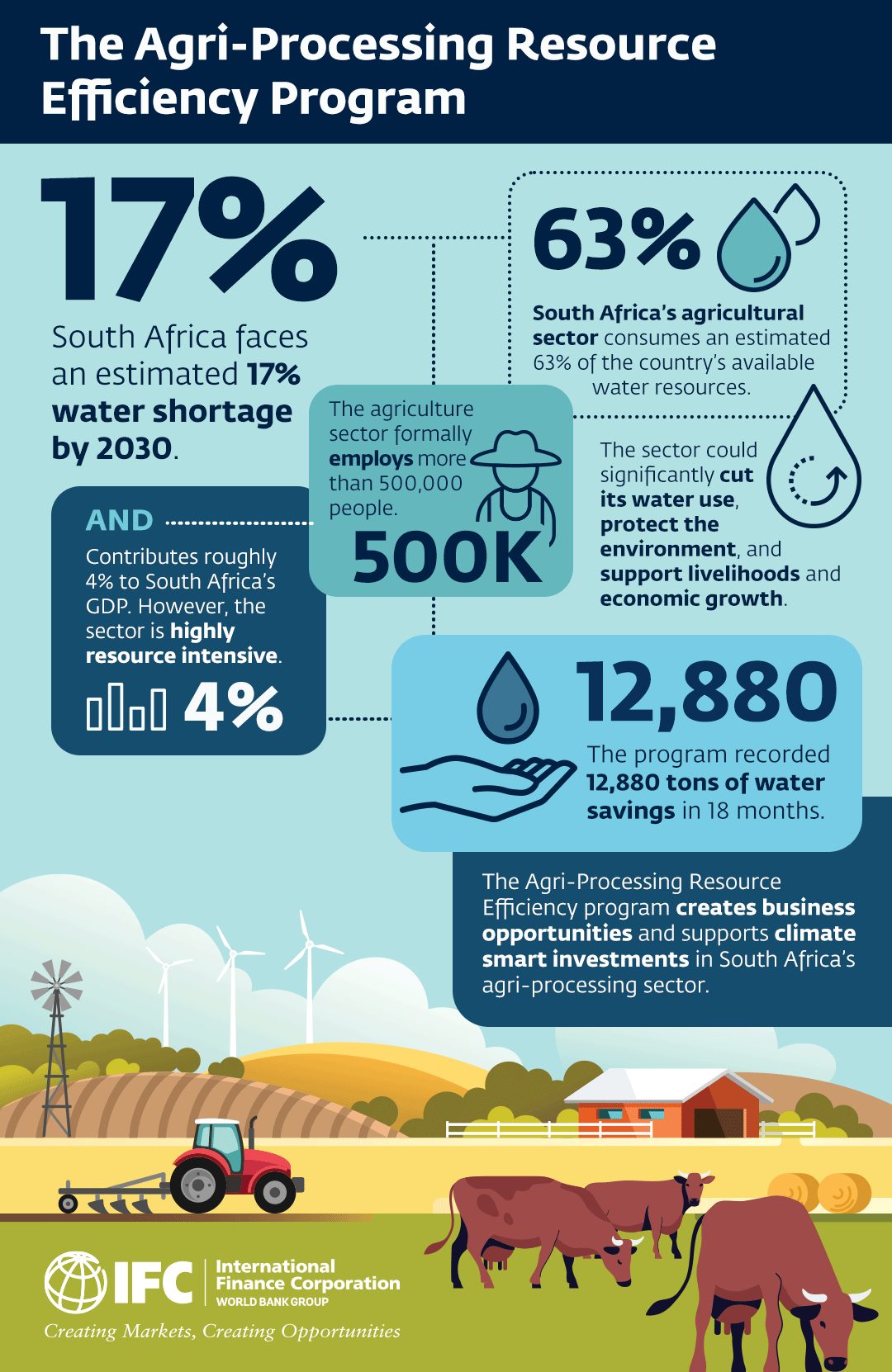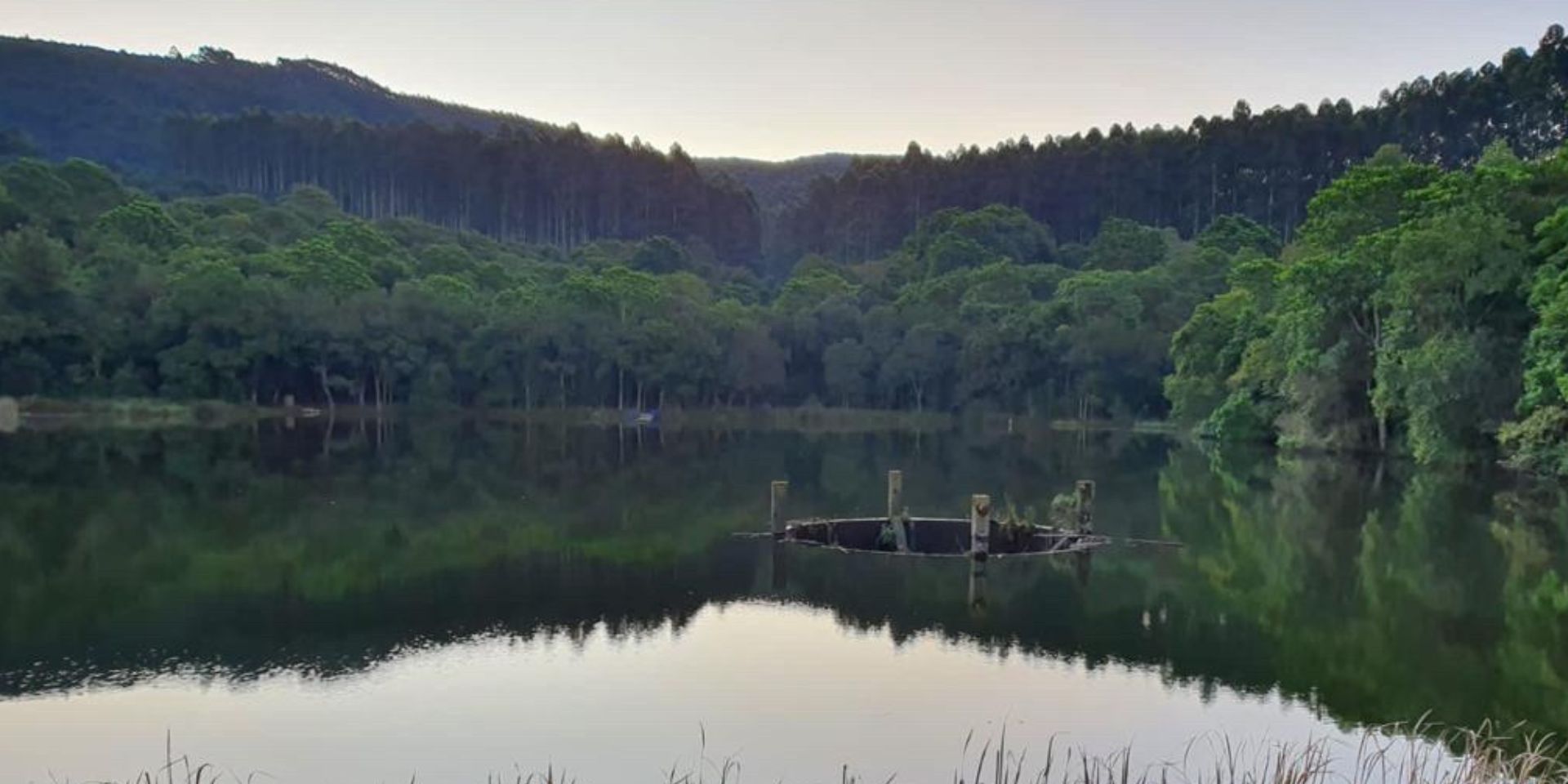By Hlazo Mkandawire
Nonhlanhla Halimana is an Operations Analyst supporting the Agri-Processing Resource Efficiency (APRE) Program at IFC, based in Johannesburg, South Africa. Her work focuses on enhancing the productivity of South Africa’s agri-processing industry through improved resource efficiency, with a focus on water. In this interview, Nonhlanhla, also known as Nyaki, shares her experiences with climate change mitigation, and how her love for yoga helped shape a lifestyle driven by environmental consciousness.
Tell us about yourself.
I was born in Harare and lived in Zimbabwe until I was 9 years old before my family moved to South Africa. Farming was a huge part of our lives and most neighbors had a small vegetable garden in their backyards. Back then, I took the availability of land and the constant supply of water to grow vegetables for granted.

Nonhlanhla Halimana (Nyaki). Photo: Courtesy of Nonhlanhla Halimana
Do you remember when you first experienced the impact of climate change?
The 2018 Day Zero water shortages in Cape Town really opened my eyes. It affected millions of people, creating a new social dynamic. When I visited the city, which I frequently did, taking a shower in a hotel was timed and household water was heavily rationed. We moved from using potable water to flush our toilets to relying on gray water, which is household wastewater from showers, bathtubs or washing machines that is reused for other purposes without purification—the shift was mind blowing!
What did you learn from that experience?
Coming from Zimbabwe, I already knew about water shortages. What’s interesting in both Zimbabwe and South Africa is how people came together to make alternate plans to become self-sufficient. The water shortages reminded me of my parents because they taught me to be sensible and not waste water, even when brushing my teeth or watering the garden.

Tell us more about your work at IFC helping our clients address and adapt to climate change.
I support the Agri-Processing Resource Efficiency (APRE) program, which is addressing market challenges and strengthening water and energy efficiency practices in South Africa’s agri-processing sector. I am responsible for policy and helped develop water use guidelines and reviewed local water policies.
IFC works with local authorities to strengthen policies to ensure agri-firms become more competitive and adopt cost-effective, innovative solutions to lower water and energy use. That includes publishing resources, such as the Red Meat Abattoir Resource Efficiency Benchmarking Study and the Metering and Monitoring Guideline. We have also hosted three public-private dialogue (PPD) forums with the eThekwini Municipality to encourage public and private sector interaction. PPDs serve as a blueprint on how to establish platforms to create opportunities for business development and support future IFC investments in climate smart technologies in South Africa’s agri-processing sector, as well as secure a seat at the table with key government counterparts.
IFC is playing a critical role supporting the agri-processing sector by boosting the adoption of water solutions that support livelihoods and economic growth.
Why is it important to improve water efficiency in South Africa and how can IFC best provide support?
South Africa’s agricultural sector consumes about 63 percent of the country’s available water resources. This is a hugely important sector for the economy. It formally employs more than 500,000 people and contributes roughly 4 percent to South Africa’s GDP.
Acting now to reduce the water shortage, which is expected to reach an estimated 17 percent of the population by 2030, will help South Africa better prepare for the increased impacts of climate change. As more companies implement measures to reduce water use, they also save money to reinvest in their businesses. Ultimately, saved water can be redirected to households that need it the most.
What achievement are you most proud of in your current role at IFC?
Being part of the APRE team that helped the eThekwini Municipality review one of its water policies. Four of the suggested recommendations are now being implemented, while the remaining 15 are being drafted legally. It feels good knowing that I helped guide the municipality’s strategy.
Published in May 2023
